
This article is more than
1 year oldAlmost 500 people have been killed in the deadliest day of bombing in Lebanon since Israel and Hezbollah started to trade blows almost a year ago.
Israel has been steadily ramping up its strikes against Hezbollah, a political and paramilitary organisation classified as a terrorist group by Australia and other countries, for weeks.
The death toll from today’s attacks currently stands at 492, including 58 women and 35 children. Approximately 1600 additional people have been wounded.
Just before the strikes began, mobile phone users across Lebanon received messages from Israeli authorities – who had hacked into the system – warning of the impending attack.
The strikes were concentrated on southern Lebanon, near the border, but also included areas far further north. Israel said it aimed to take out Hezbollah weapons and rocket launcher sites hidden in homes and other buildings.
On the other side of the border, Israel has said one million of its 9.5 million residents are sheltering from incoming Hezbollah rockets. Its Iron Dome defence system intercepted several rockets above the northern city of Haifa today. Hezbollah has targeted Haifa for several days now, sending its weapons further south into Israel than it has done previously.
After a week which has involved scores of Hezbollah deaths in Lebanon, as well as civilians, Egypt has warned the situation could escalate into “all-out regional war”.
And the Foreign Minsiter of Jordan, Ayman Safadi, has accused Israel of continuing “to push the region towards the abyss of a comprehensive regional war”.
Mr Safadi urged the United Nations to “curb Israeli aggression and protect the region from its disastrous consequences”.
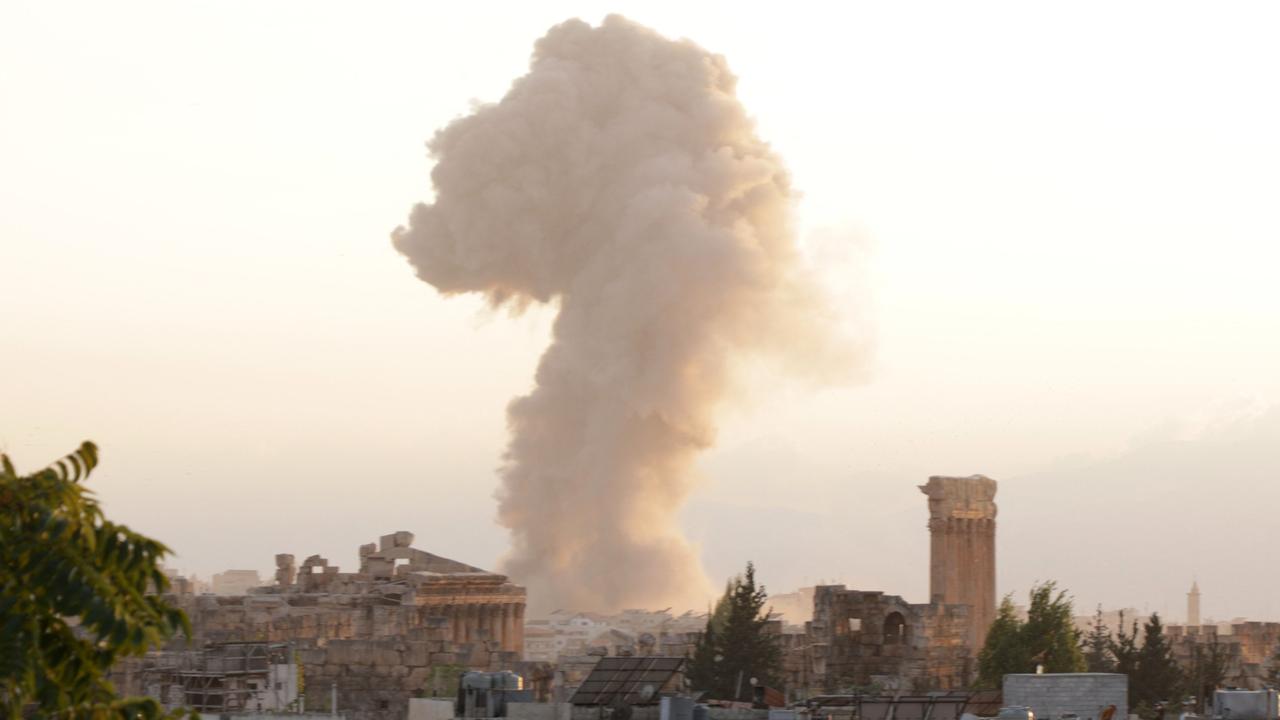
Daniel Hagari, a spokesman for the Israeli military, said 1300 targets had been hit so far in Lebanon and that “every house that we strike contains weapons”.
He advised Lebanese people to stay away from houses that might contain weapons.
“Hezbollah intends to launch these weapons toward Israel, and we will not allow it! Stay away for your own protection,” Mr Hagari said.
“Among those killed were a large number of Hezbollah terrorists who were next to the weapons that we targeted,” he said of today’s strikes, adding there had been a “high number of casualties”.
“Let me be clear: Hezbollah is responsible for this situation.”
Senior Hezbollah leader Ali Karaki, the head of the terror group’s forces in Lebanon’s south, was reportedly a key target of Lebanon. But Hezbollah has said he is safe.
Israel’s defence minister Yoav Gallant commended the Monday strikes.
“Today is a significant peak — on this day we have taken out of order tens of thousands of rockets and precise munitions,” he said.
“What Hezbollah has built over a period of 20 years since the second Lebanon War is in fact being destroyed by the IDF.”
The US has said it will send more troops to the Middle East as the crisis worsens. While Iran has warned of “dangerous consequences” if a Gaza ceasefire is not reached which is seen as key to defusing the Israel-Hezbollah confrontation.
The conflict is now the worst between Hezbollah and Israel since a war in 2006.
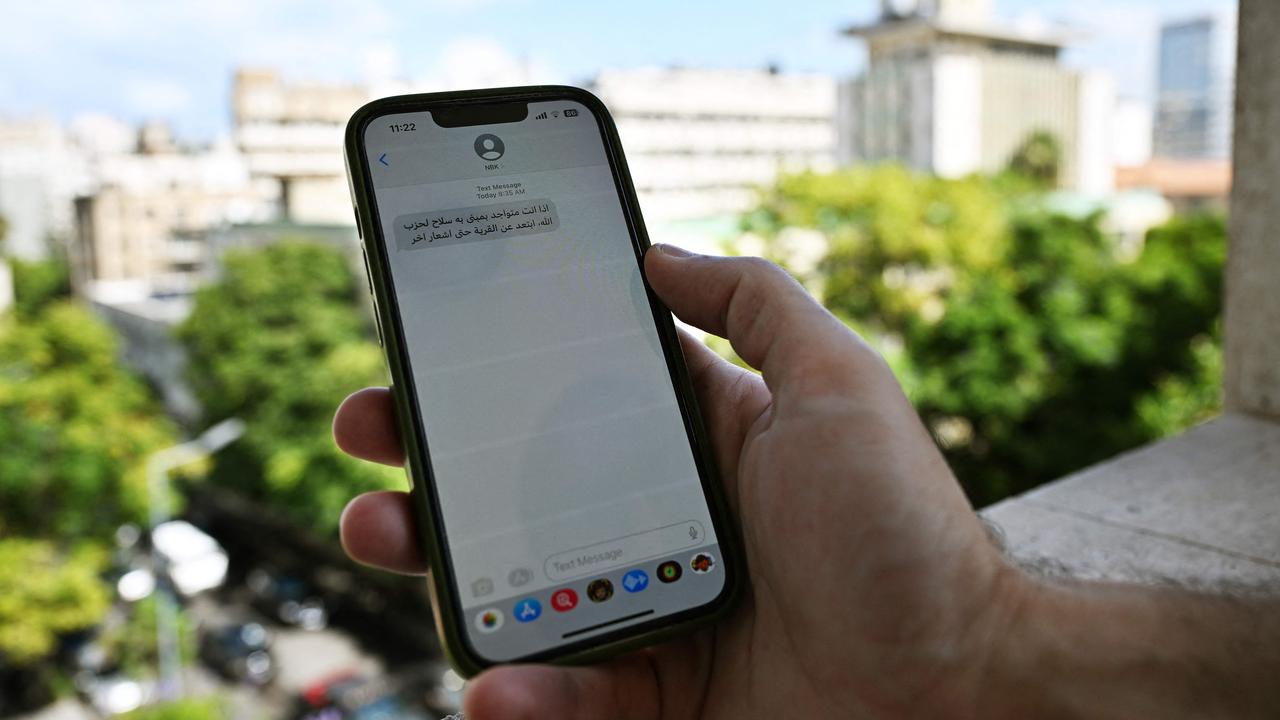
Text warning
Lebanon’s health minister Dr Firass Abiad told the BBC the country was a victim of a “new stage of war,” between Israel and Hezbollah.
“The main aim of these attacks was to instigate this exodus of civilians from the target areas,” he said.
“The decision has been made across the border (in Israel) that escalation is required.”
Hezbollah is based in Lebanon. It also has a political presence in the government and has significant influence but it does not run the country and faces opposition. The Lebanese army is not part of Hezbollah.
The exodus of civilians also included an ominous Israeli text
Earlier on Monday, Israel’s military sent messages to mobile phones in Lebanon. Hacking into the country’s mobile phone network, the messages starkly called for civilians in southern Lebanon to “immediately move out of harm’s way” before “extensive, precise strikes” target Hezbollah personnel and weapons.
“Shortly the IDF will engage in extensive, precise strikes against terror targets which have been embedded widely throughout Lebanon,” he said before the strikes began.
“We ask residents of Lebanese villages to pay attention to the message and warning published by the IDF, and heed them.
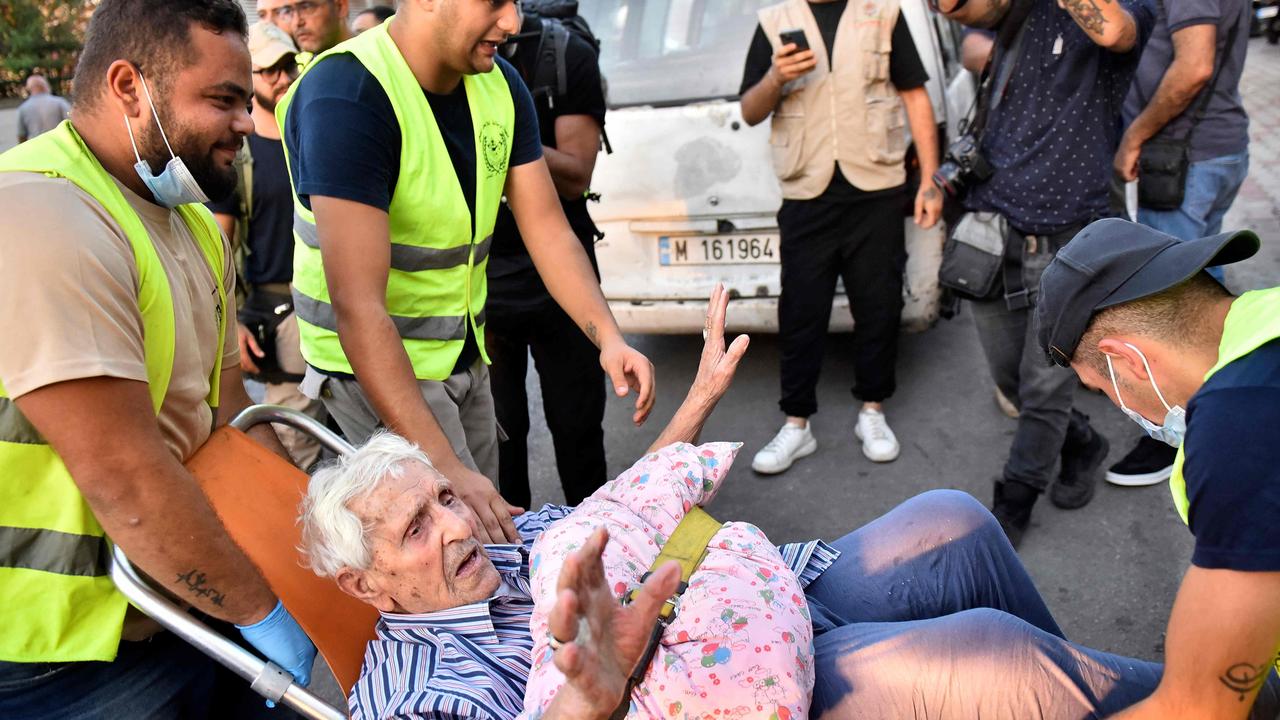
“This is an advance warning for your own safety and the safety of your family.
“We advise civilians from Lebanese villages located in and next to buildings and areas used by Hezbollah for military purpose, such as those used to store weapons, to immediately move out of harms way for their own safety.
“Hezbollah is endangering you and your families.
“Hezbollah’s activities are dragging Lebanon and the entire region into a wider escalation.”
It comes hours after one of Hezbollah’s top figures has declared it was locked in an “open-ended battle of reckoning”.
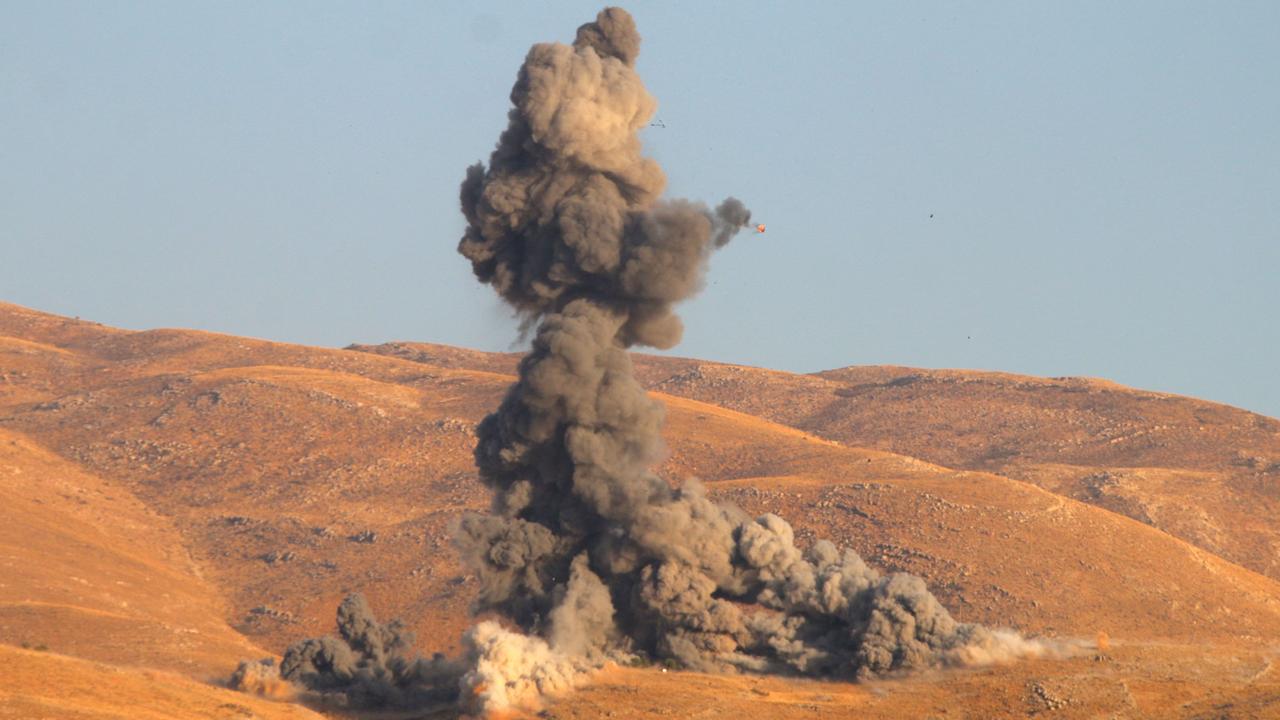
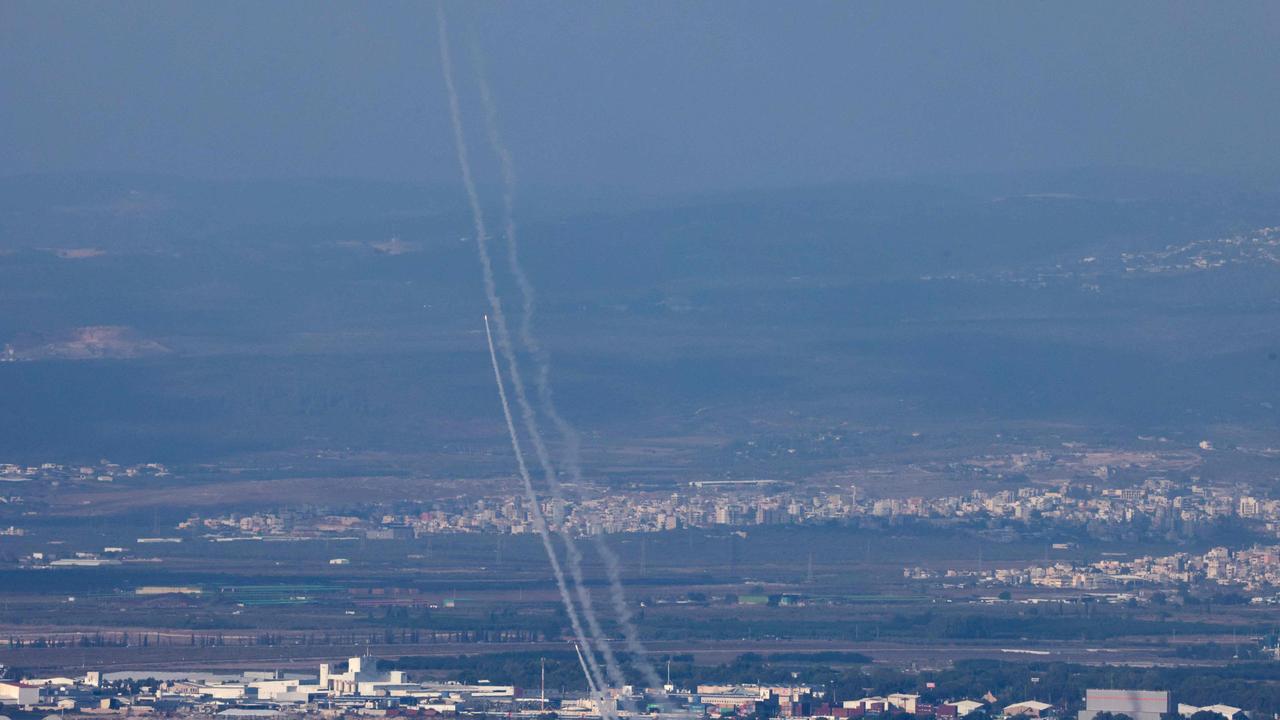
Fear of broader war
Egypt has urgently called for calm fearing a broader conflict in the region.
It has warned that the rising violence between the IDF and the Lebanon-based Hezbollah terror group has severely hampered negotiations for a ceasefire and hostage release deal between Israel and Hamas in Gaza.
The ceasefire talks, which have been ongoing for months, involve Egypt, Qatar, and the United States as key mediators.
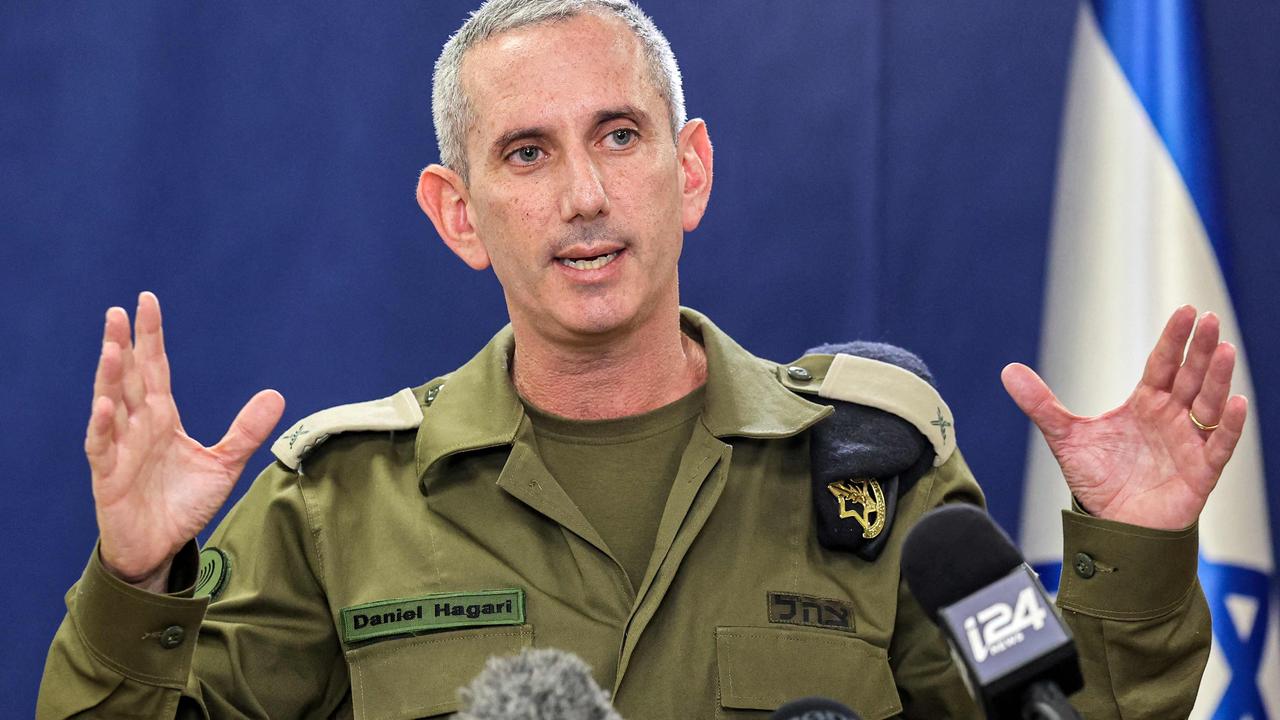
But the mission for peace has deteriorated heavily in the wake of last week’s pager explosions, followed by retaliatory strikes on Israel.
Foreign minister Badr Abdelatty said Egypt had a strong commitment to continuing efforts toward broking a truce but said progress had been hindered by a lack of political will, accusing Israel of being the obstacle.
“There is great concern about … the possibility of an escalation in the region leading to an all-out regional war,” he said.
He criticised Israel’s “provocative policies,” blaming them for intensifying conflict with Hezbollah when the goal should be de-escalation.
“All the components of the deal are ready. The problem is the lack of political will on the Israeli side,” he asserted, despite fellow mediator the United States placing the blame squarely on Hamas.
“We are talking to our regional and international partners, including the United States, about the importance of working to stop the escalation and stop the unilateral and provocative policies that Israel is carrying out.”